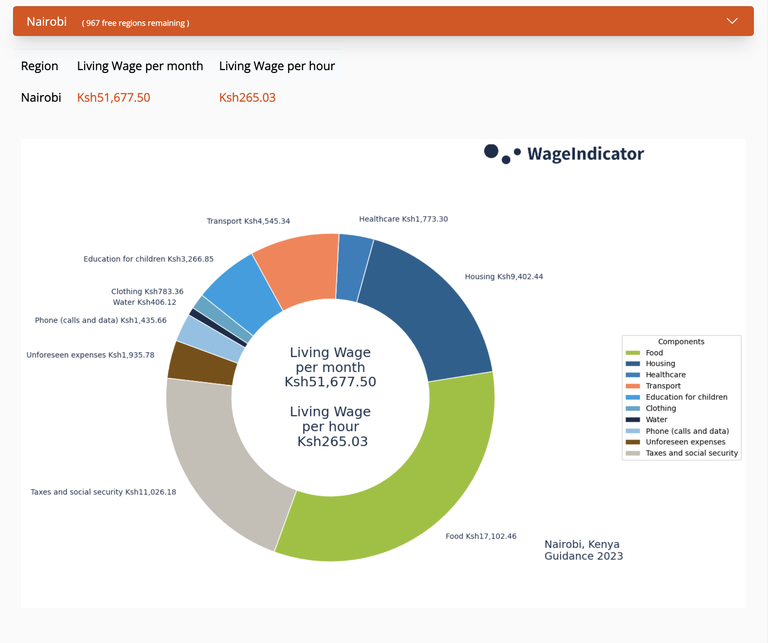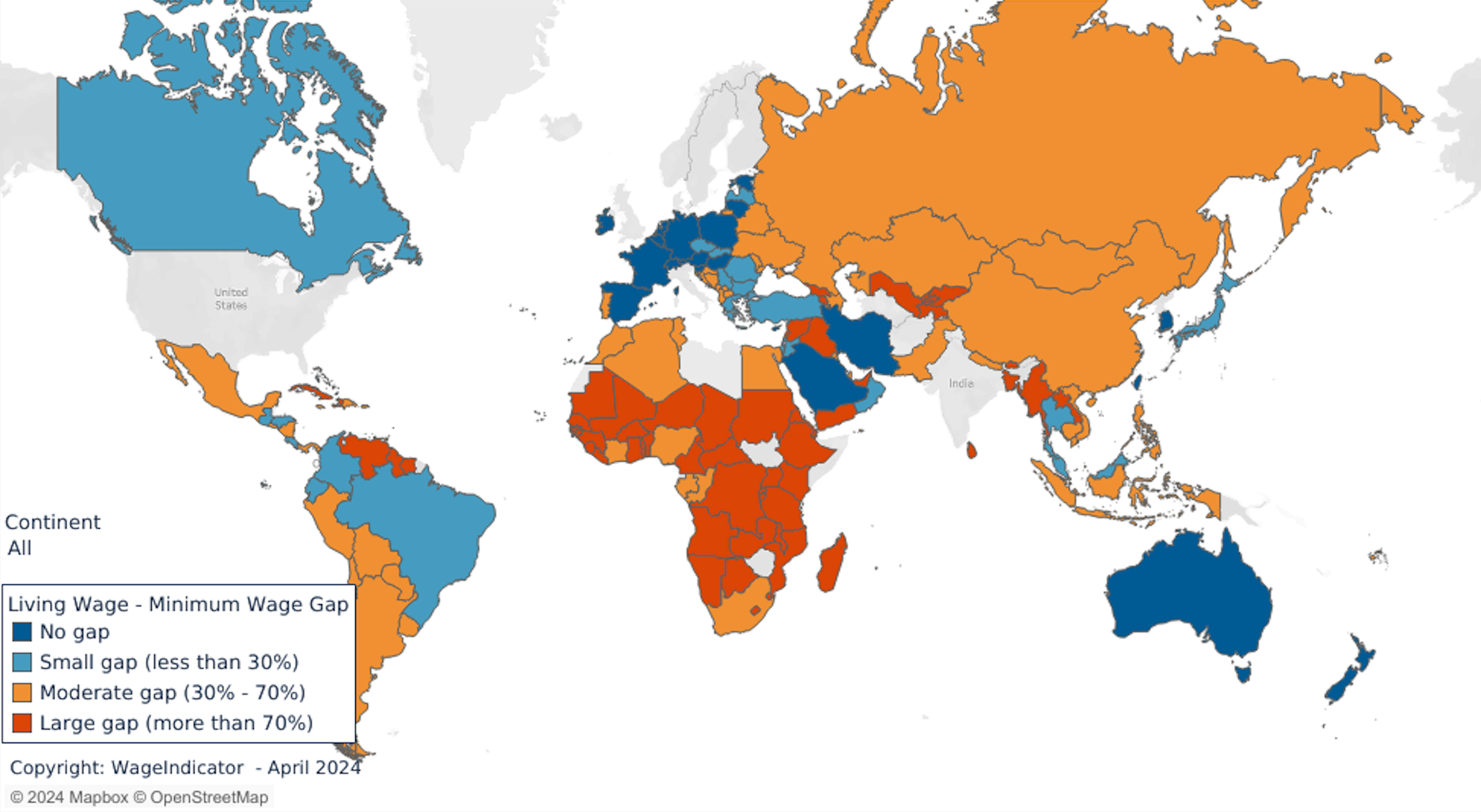WageIndicator Foundation publishes Living Wage estimates for 165 countries
Amsterdam, May 1st 2024 - On May 1st 2024, WageIndicator Foundation is publishing its Living Wage estimates for 165+ countries on national WageIndicator websites, making Living Wage data available to all. This move aims to solve a crucial problem faced by many: the lack of free and up-to-date regional Living Wage estimates at a global scale. Removing this barrier can support wage negotiations and collective bargaining, and facilitate the implementation of Living Wages everywhere, more specifically along global supply chains. The annually updated Living Wage estimates are available in national languages and currencies.
Enabling Labour Market Transparency
WageIndicator’s overarching goal is to improve labour market transparency. Published Living Wage estimates enable equal access to data, supporting informed decision-making among workers/employees, employers, social partners, researchers and governments. This publication also follows the International Labour Organisation’s (ILO) principles for estimating Living Wages, which call for the timely and public availability of estimates and methodologies.
Paying Living Wages not only benefits employers and employees, but is a vital step towards achieving the Sustainable Development Goals. For companies, it’s an increasingly important part of their social reporting, such as those stipulated by the European Corporate Sustainability Reporting Directive (CSRD).
Living Wages in Context

Above: A sample Living Wage data page for Nairobi, Kenya at Mywage.org/Kenya
When accessing data on a country-specific website, a visitor can select the region of their choice to see the Living Wage estimates. WageIndicator’s methodology calculates estimates based on price data of goods and services needed for a decent standard of living for a worker and their family. There is a need for this data, as in most countries the statutory Minimum Wage is lower than the estimated Living Wage. As per April 2024, in only 26 countries the national Minimum Wage is higher than WageIndicator’s Living Wage estimates, as shown below.

WageIndicator Living Wage database is recognised by IDH (the Sustainable Trade Initiative) and is used by B-Lab in their B-Corp Certification process. The European Sustainability Reporting Standards also recommend WageIndicator estimates, among others.
Championing Publicly Available Data
WageIndicator is the first organisation to make Living Wage estimates at this scale freely accessible to all. The publication comes ten years after WageIndicator started its Living Wage database. The published Living Wage estimates are the latest addition to WageIndicator’s extensive list of freely accessible global data on Minimum Wages, Salaries, Labour Laws, and Collective Agreements.
To mark the occasion, Paulien Osse, Co-Founder of WageIndicator and Global Lead of the Living Wage Team says, “The Living Wage publication marks the culmination of 25 years of hard work. When WageIndicator launched a salary check in 2000, our goal was to ensure everyone knew what they may earn. By publishing our Living Wage estimates, we are removing a crucial barrier in wage negotiations, which hopefully ensures that you, your colleague, your boss, a truck driver, the nanny of your kids and employers and unions alike can engage in informed negotiations, creating fairer workplaces for all.”
The availability of WageIndicator’s Living Wage estimates as a public good would not have been possible without the support of dedicated funders, who include IKEA, Schneider Electric and Unilever (as Partners), The Hershey Company and PMI (as Sponsors), and Fairphone and dsm-firmenich (as Supporters), among others.
WageIndicator’s Living Wage estimates have been developed and maintained by the collaborative efforts of hundreds of data collectors around the world, as well as universities and research institutes like the Central European Labour Studies Institute (CELSI) in Slovakia; the Central European University in Austria; FLAME University and the Indian Institute of Management, Ahmedabad, in India; the University of Utrecht and Erasmus University Rotterdam in the Netherlands; and Masaryk University in Czechia.
On the 2nd of May, WageIndicator will host a formal launch webinar to introduce the database and showcase its use. To participate in the event please register on WageIndicator's website.
For the press:
- If you’re a member of the press and want to find out more, please contact vivianhartlief@wageindicator.org
Additional information and links:
- For access to detailed and customised global Living Wage datasets, contact us
- To know more about our methodology, you can read our Living Wages Worldwide report or see our Frequently Asked Questions.
- Learn more about the difference between Minimum Wages and Living Wages across the world on our website
- To view all the countries for which Living Wage estimates are available, click here.
- WageIndicator also hosts freely accessible databases on Minimum Wages, Collective Agreements, Salaries, and Labour Laws
